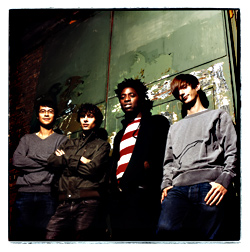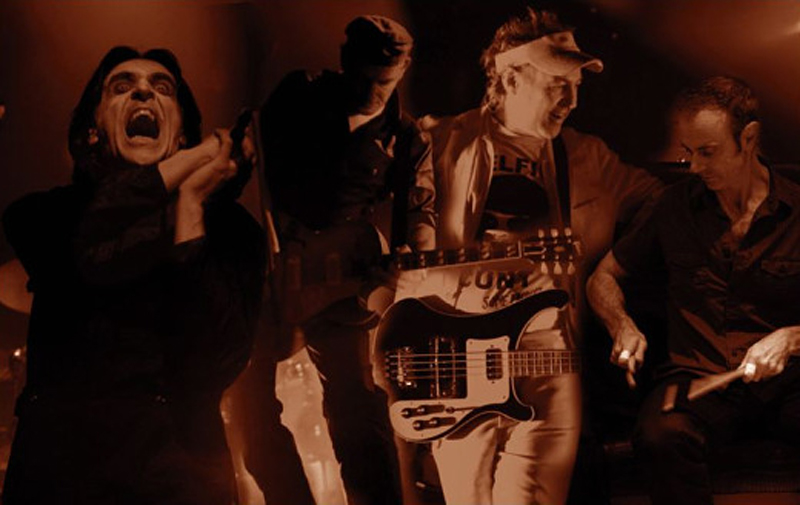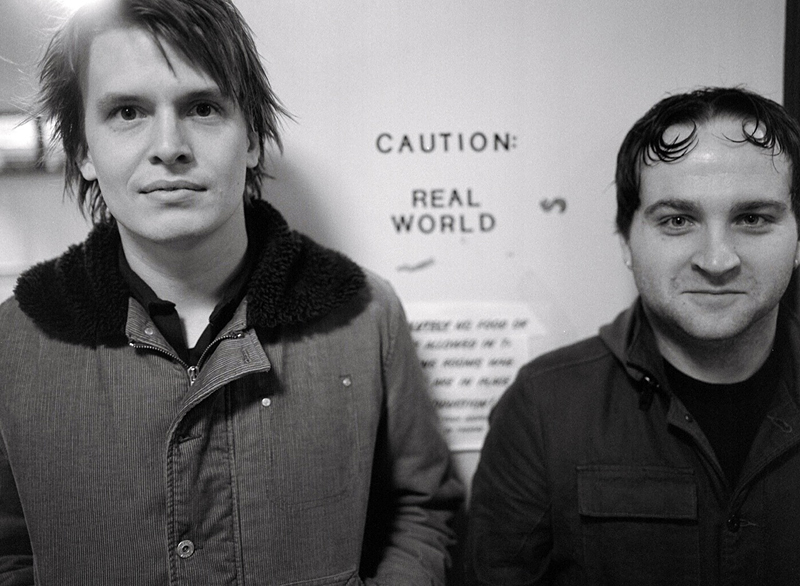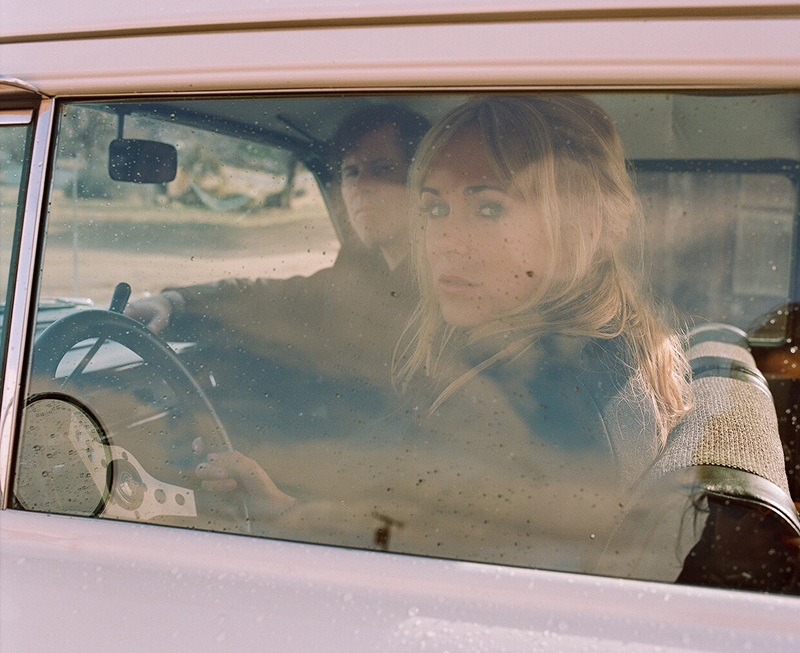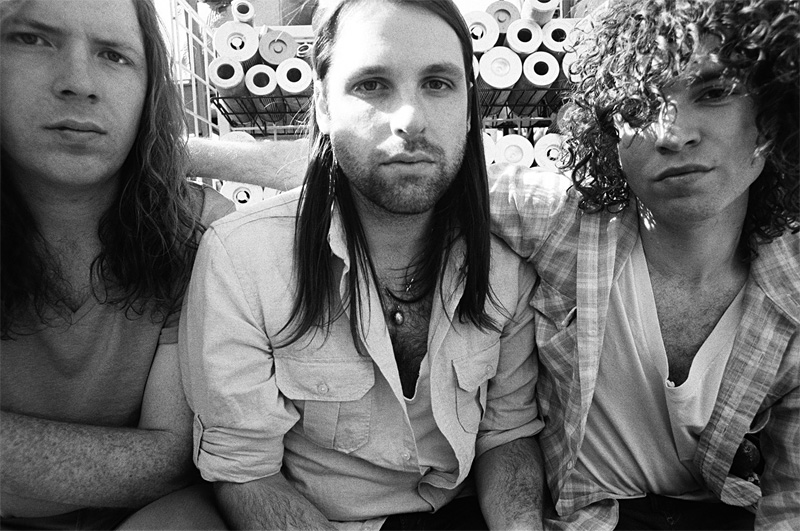Bloc Party’s terrific 2005 debut, Silent Alarm, celebrated the now: twitchy guitars and madcap rhythms inside pithy, spartan tunes that hit like your stimulant of choice, urging you to move, not think. Sure, frontman Kele Okereke was yelping obliquely about Dubya and the war, but the quartet’s chief command was to dance, damn the consequences. Two years later, their even-better follow-up, A Weekend in the City—comparably sweeping, slower, structurally fatter, and markedly more ruminative and cynical—faces the music, and things are not pretty (even if its sonics frequently are). The party’s not quite over, but the sun is rising, shining enough light to see that lives, and the city in which they’re being lived (in this case, London), are edging toward ruin.
Reached by phone at his home in England, on the eve of a U.S. tour that launches here in Seattle, Bloc Party bassist Gordon Moakes is initially coy about his band’s evolution in sound and mood. “I would just get lost in each song, and get stuck in with playing things, rather than really thinking about, you know, ‘What are we trying to do?'” he says of the making of Weekend.
Soon, though, he’s a little more forthcoming. “I don’t know if this is fair to say, but I definitely think with the first Franz Ferdinand record that the week it came out, it just made so much sense, and then a year later it just didn’t seem to work so well for me. The sound was very hip-sounding for its time, but not necessarily timeless. We wanted to make a record that would stand the test of time.”
Career longevity and artistic relevance obviously being a goal of the entire band—which also includes guitarist Russell Lissack and drummer Matt Tong—Moakes and company were keenly aware of the choices made by some of their “angular Brit-rock” peers in the wake of similar early success, and the results. Franz Ferdinand stayed the course and made a second album that sounded much like their first; it did moderately well, but now that band feels like yesterday’s news. The Futureheads, meanwhile, shifted gears with last year’s ambitious, excellent News and Tributes, which was all but ignored in the U.S. Bloc Party followed the riskier path of the latter, and it paid off: Weekend entered the Billboard album charts at No. 12; the highest Silent Alarm ever reached was No. 114.
Marketing and promotion aside, the album’s wider appeal from a musical perspective isn’t hard to understand. At the heart of five-minute opener “Song for Clay (Disappear Here)” is one of the band’s choppy, propulsive, loud guitar parts, but it’s introduced by haunted keyboards and Okereke’s plaintive, tenor-to-falsetto-and-back croon, and is frequently subjugated by elegant arpeggios and cooing vocal harmonies. Similarly, “Waiting for the 7.18” makes room for some manic guitar work, but mostly it’s the big, stately strums of the U2 variety. And a later track like “Sunday” pretty much epitomizes the disc’s second half: Decelerated, lushly layered, and anthemic, its ringing six-strings, subtle electronics, and inviting melody evoke Coldplay more than Gang of Four.
Says Moakes, “We just figured that there’d be a lot going on. But instead of stripping stuff out, this time we allowed all those things to sit alongside each other and hoped for the best.”
Okereke’s lyrics, however, dwell on the worst, and his grim take on London as a dystopian nightmare—crumbling under the weight of racism, soul-destroying capitalism, terrorism, drug abuse, and general malaise—is rendered that much more acute when fixed to such a sublime aural setting. For the singer, vampires abound, whether it’s the city that “sucks the joy right out of me” (“Song for Clay”) or cocaine’s bite, which ultimately creates “a flatness bleaker than the one it replaced” (“On”). In “Hunting for Witches,” he rips into media and government fearmongering in the wake of the 2005 London bus bombings; in “Uniform,” he mocks a society lulled into apathy (“Drink to forget your blues on the weekend/Think about more things to buy”); and in the scathing “Where Is Home?”—about the racially motivated 2006 murder of British teenager Christopher Alaneme, whose parents hail from Nigeria—Okereke (also of Nigerian descent) laments that “In every headline we are reminded/That this is not home for us.” Though his words are sometimes times-specific, Okereke’s visions of London aren’t much different from Johnny Rotten’s three decades ago, or even Charles Dickens’ a century before that.
“I guess things don’t change massively in cities from generation to generation,” Moakes notes. “The fashions change and the drugs change, buildings go up and some come down…but I’m sure the backdrop will always be fairly easy to identify with. On the whole, I think it’s one of those records that will hold up pretty well.” He pauses and laughs. “Hopefully, so will we.”
